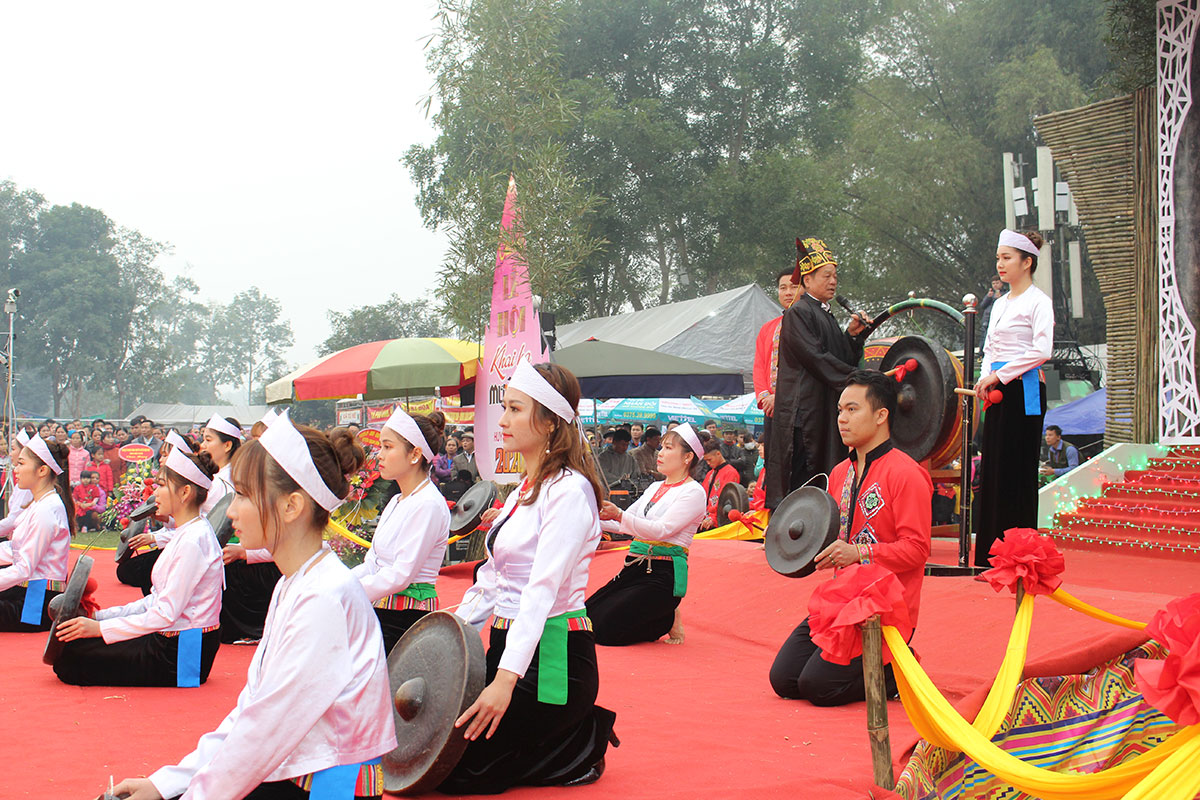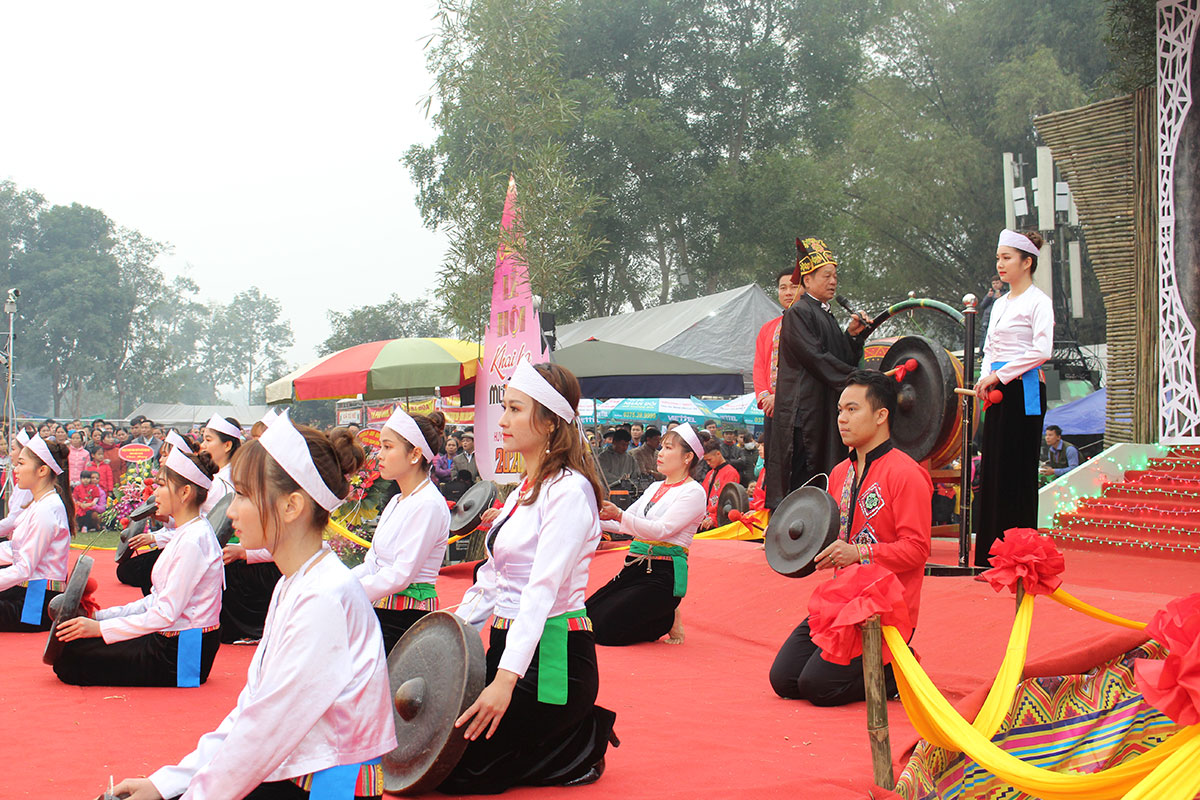
(HBO) – Thanks to the Resolution adopted at the fifth plenum of the 8th-tenure Party Central Committee on building and developing Vietnamese culture imbued with national identity, Mo Muong, a unique cultural heritage of the Muong ethnic group in Hoa Binh province, has been restored since 2000.

Mo Muong is a job and also a performance
practiced at funerals, religious festivals, and life cycle rituals by the Muong
ethnic group. The art consists of Mo prayers and performances, by Mo
practitioners, or Mo artisans.
Hoa Binh province has viewed Mo Muong as a
cultural heritage that needs to be preserved and promoted, and has included it
in the Resolution of the provincial Party Congress for the 2015-2020 and
2020-2025 tenures.
The Resolution highlighted the mobilisation of
resources to preserve and promote mountainous cultural identities of ethnic
minority groups in combination with tourism development.
It also mentioned the submission of the dossier
on Mo Muong to the UNESCO for recognition as an intangible cultural heritage in
need of urgent protection.
Despite ups and downs, with the introduction of
foreign culture, Mo Muong has maintained its vitality and nurtured the
personality and soul of generations of Muong people.
To preserve the custom, the entire political
system and people in Hoa Binh have implemented both short and long-term plans
seeking the UNESCO’s recognition.
The Standing Board of the provincial Party
Committee has ordered strengthening the leadership of all-level Party
committees in realising the Law on Cultural Heritage and documents on the
protection and promotion of cultural values, notably Mo Muong.
The board asked all-level Party committees,
authorities, Vietnam Fatherland Front committees and social-political
organisations to actively coordinate with relevant ministries, agencies and
localities in seeking the Prime Minister’s approval to submit the dossier to
the UNESCO.
Luu Huy Linh, Deputy Director of the provincial
Director of Culture, Spots and Tourism, said his department will step up the
communication work in the time ahead to raise public awareness of Mo Muong.
Mo Muong performances would be staged at
programmes, festivals, cultural exchanges and other events in the province, he
said.
The Mo Muong club in Lac Son district has been
assigned to open Mo Muong classes, Linh said, adding that the department will
also partner with its counterparts in a number of provinces where Muong people
are living to complete the dossier. /.
With an increasingly vibrant and widespread emulation movement aimed at building cultured residential areas and cultured families, Yen Thuy District has been making steady progress toward improving both the material and spiritual well-being of its people, while fostering a civilized, prosperous, beautiful, and progressive community.
Once lacking recreational spaces and community facilities, Residential Group 2 in Quynh Lam Ward (Hoa Binh City) has recently received attention for the construction of a new, spacious, and fully equipped cultural house. The project followed the model of state support combined with public contributions in both labor and funding.
The "All people unite to build cultural life" movement, which has been effectively integrated with Kim Boi district’s socio-economic development goals, is fostering a lively spirit of emulation across local residential areas, hamlets, villages, public agencies, and enterprises. In addition, through the initiative, traditional cultural values are being preserved and promoted, while community solidarity and mutual support in poverty reduction and economic development are being strengthened.
A working delegation of the Hoa Binh provincial People’s Committee led by its Permanent Vice Chairman Nguyen Van Toan on June 11 inspected the progress of a project to build the Mo Muong Cultural Heritage Conservation Space linked to tourism services in Hop Phong commune, Cao Phong district.
Born and growing in the heroic land of Muong Dong, Dinh Thi Kieu Dung, a resident in Bo town of Kim Boi district, in her childhood was nurtured by the sweet lullabies of her grandmother and mother. These melodies deeply imprinted on her soul, becoming an inseparable part of her love for her ethnic group's culture. For over 20 years, this love for her hometown has driven Dung to research, collect, and pass down the cultural values of the Muong people to future generations.
In the final days of May, the Ethnic Art Troupe of Hoa Binh Province organized performances to serve the people in remote, mountainous, and particularly disadvantaged areas within the province. These were not just ordinary artistic shows, but they were the meaningful journeys aimed at spreading cultural values, enhancing the spiritual life of the people and contributing to the preservation of ethnic minority cultural identities.



